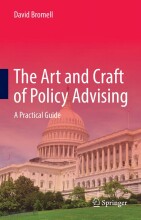Doing policy analysis
8 important questions on Doing policy analysis
Analysis, advice and avocacy
-Advice: Bridges the gap between analysis and decision, supporting decision makers to select and implement their preferred policy options.
-Advocacy: trying to persuade politicians, and the public, of the benefits of the recommended options.
Models about science and policy making
Decisionist
Inverted decisionist
Co-production
Two types of politics
- Higher grades + faster learning
- Never study anything twice
- 100% sure, 100% understanding
How to determine what is fair
-relationships: who are the key stakeholders)? Are there any existing agreements, contracts or agreements between them?
-Time: what time constraints are we are facing? What trends over time we can observe and what are the implications of these trends now and in the future?
What is required in a fair process
-deliberative fairness is about how rules are set.
-transactional fairness is about how rules are operationalized and about playing the rules once set.
-transitional fairness requires reasonableness in how way rules are changed, regarding timing of policy implementation
How to assess fair outcomes
-Assess policies regarding the extent to which they actualise agreed set of values
Four values against which to assess fair outcomes:
oNegative freedom: once he policy is implemented, if it intrudes the liberty of the individual
oPositive freedom: does the policy enable people to pursue their own idea of the good.
-Equity is proportional equality in the distribution of costs and benefits.
oSocial recognition in terms of unequal needs, unequal talents and abilities
-efficiency: requires us to make the best us of available resources to as possible desired social ends.
-Reciprocity: means a complete life with opportunities to belong, participate and contribute according to our abilities
What is good policy advice
-Frank: Be open and honest.
-full: bring all the available evidence and multiple perspectives
-Focused: on the outcomes the governments want to achieve
-Without Favour: provide politically neutral advice, that’s impartial to interest groups
-Fearless: be bold in striving for new ways of doing things
-fallible: advice and its underpinning evidence needs to be clear and testable
-Future focused: keep an eye on the future
The question on the page originate from the summary of the following study material:
- A unique study and practice tool
- Never study anything twice again
- Get the grades you hope for
- 100% sure, 100% understanding
































